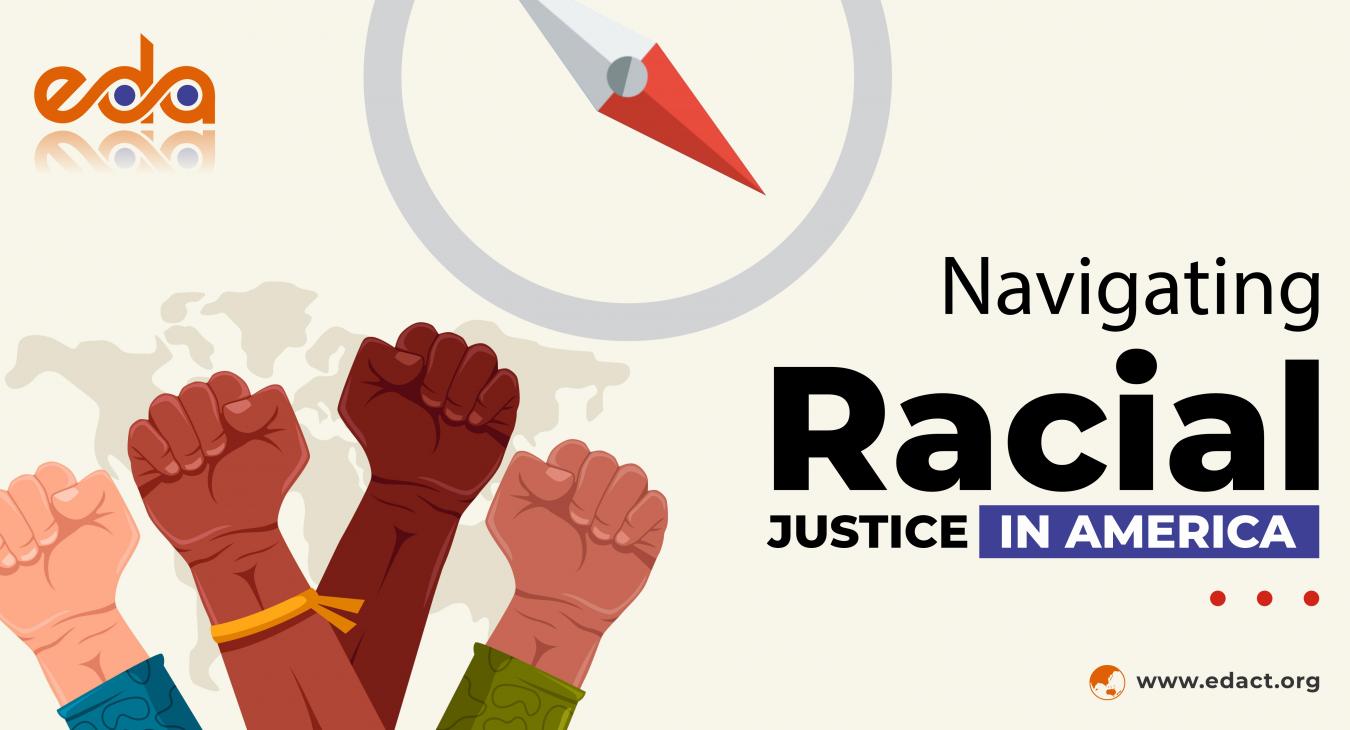
Navigating Racial Justice in America
Racial justice stands at the core of America's ongoing narrative, intertwining past struggles with current challenges. As we reflect on the historical journey of BIPOC communities and the civil rights movement, we confront the pressing need to address systemic inequities and strive for a more equitable future.
Historical Reflections
The fight for racial justice in America is deeply rooted in centuries of struggle against slavery, segregation, and systemic discrimination. From the Civil Rights Movement of the 1960s to the present-day Black Lives Matter movement, BIPOC individuals and allies have mobilized to demand equal rights, justice, and dignity.
Challenges Today
Despite significant progress, systemic racism persists in various facets of American society, including education, healthcare, criminal justice, and employment. BIPOC communities continue to face disparities in access to resources, opportunities, and representation, highlighting the ongoing need for systemic change.
Education:
BIPOC students often encounter disparities in access to quality education, resources, and opportunities. Factors such as underfunded schools in predominantly minority neighbourhoods, disproportionate disciplinary actions, and lack of representation in educational leadership contribute to the persistent achievement gap.
Healthcare:
Systemic racism in healthcare manifests in disparities in access to care, quality of treatment, and health outcomes. BIPOC individuals face barriers such as limited access to healthcare facilities, implicit bias in medical settings, and inadequate representation in clinical trials, leading to higher rates of chronic illnesses, maternal mortality, and other health disparities.
Criminal Justice:
The criminal justice system reflects and perpetuates racial disparities at every stage, from policing and arrests to sentencing and incarceration. BIPOC individuals are disproportionately targeted by law enforcement, subjected to harsher sentencing, and face systemic biases within the judicial system, leading to overrepresentation in prisons and unequal treatment under the law.
Employment:
BIPOC communities continue to face barriers in accessing equitable employment opportunities, experiencing discrimination in hiring, promotions, and wages. Factors such as occupational segregation, lack of diversity in leadership positions, and unequal access to resources for entrepreneurship contribute to persistent disparities in employment and economic mobility.
Equitable Solutions:
To achieve racial justice and foster equity, it's crucial to implement equitable solutions that address both historical injustices and present-day inequalities. Here are key strategies to consider:
Policy Reforms:
Implementing policy reforms at local, state, and federal levels is essential to dismantle systemic barriers and address racial disparities. This includes reforms in areas such as criminal justice, education, healthcare, housing, and employment. Examples of policy reforms may include:
- Criminal Justice Reform: Implementing police accountability measures, ending racial profiling, reforming sentencing laws, and investing in alternatives to incarceration.
- Education Equity: Increasing funding for schools in marginalized communities, implementing culturally responsive curriculum, and addressing disparities in school discipline.
- Healthcare Access: Expanding access to affordable healthcare, investing in community health centres, and addressing social determinants of health that contribute to disparities.
- Housing Equity: Enforcing fair housing laws, investing in affordable housing initiatives, and addressing discriminatory lending practices.
- Employment Opportunities: Implementing policies to promote diversity and inclusion in hiring practices, addressing wage gaps, and supporting minority-owned businesses.
- Voting Rights Protection: Enacting measures to protect voting rights, combat voter suppression tactics, and promote access to the electoral process for all citizens.
Diversity and Inclusion Initiatives:
Promoting diversity and inclusion in institutions, organizations, and workplaces is essential for creating environments that reflect and respect the diversity of communities. This includes:
- Implementing diversity training programs for employees and leadership teams to address implicit bias and promote cultural competence.
- Establishing diversity, equity, and inclusion (DEI) committees or task forces to develop and implement strategies for creating more inclusive environments.
- Ensuring representation of BIPOC individuals in leadership positions and decision-making roles to reflect the diversity of the communities they serve.
- Creating safe spaces for open dialogue and constructive conversations about race, equity, and social justice.
Community Empowerment:
Empowering BIPOC individuals and communities to lead and drive change is essential for achieving racial justice. This includes:
- Investing in community-led initiatives and grassroots organizations that address local needs and priorities.
- Providing resources and support for initiatives that promote economic empowerment, educational attainment, and civic engagement within BIPOC communities.
- Amplifying marginalized voices and centering the experiences and perspectives of BIPOC individuals in decision-making processes.
- Partnering with community organizations and leaders to co-create solutions that address systemic inequities and promote social justice.
The Role of Advocacy
Advocacy plays a crucial role in advancing racial justice, with individuals, organizations, and communities advocating for systemic change. Through grassroots activism, legal advocacy, and community organizing, advocates work to amplify marginalized voices, challenge injustice, and advocate for policies that promote equity and inclusion. Organizations like Equitable Development Action EDA is an advocate for equity.
Looking Ahead
As we navigate the complexities of racial justice in America, it's essential to remain committed to the ongoing struggle for equity and justice. By learning from the lessons of the past, confronting the challenges of the present, and working together to build a more equitable future, we can create a society where all individuals are valued, respected, and empowered.
Racial justice in America is a journey marked by both progress and setbacks, victories and challenges. As we reflect on the past struggles and confront the present realities, let us renew our commitment to the pursuit of equity, justice, and dignity for all BIPOC individuals and communities. Together, we can create a future where racial justice is not just a goal but a reality for all.
Reference
- American Civil Liberties Union
https://www.aclu.org/issues/racial-justice
- AARP
https://www.aarp.org/home-family/friends-family/info-2020/having-racial-justice-conversations.html
- FrameWorks Institute
https://www.aarp.org/home-family/friends-family/info-2020/having-racial-justice-conversations.html
